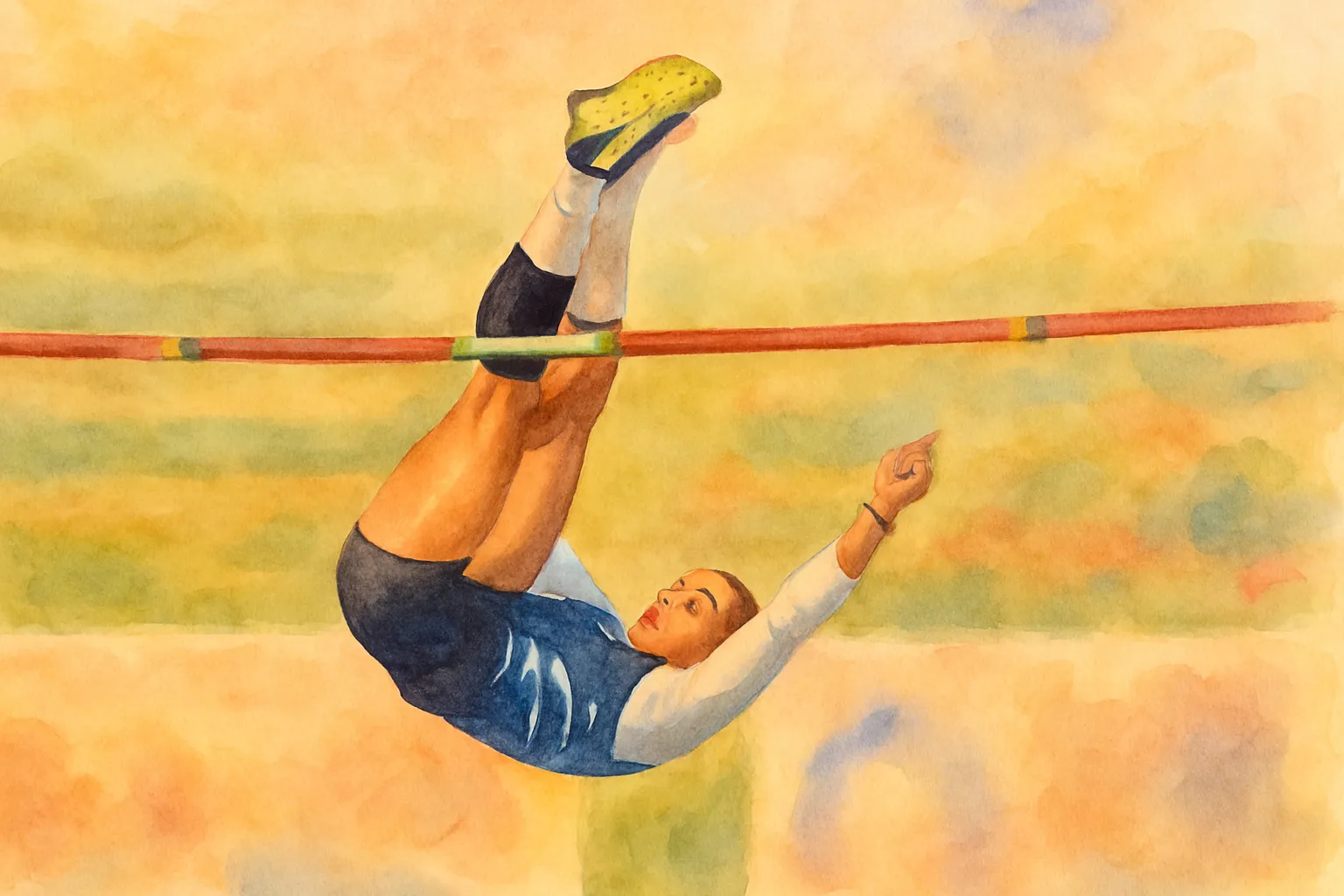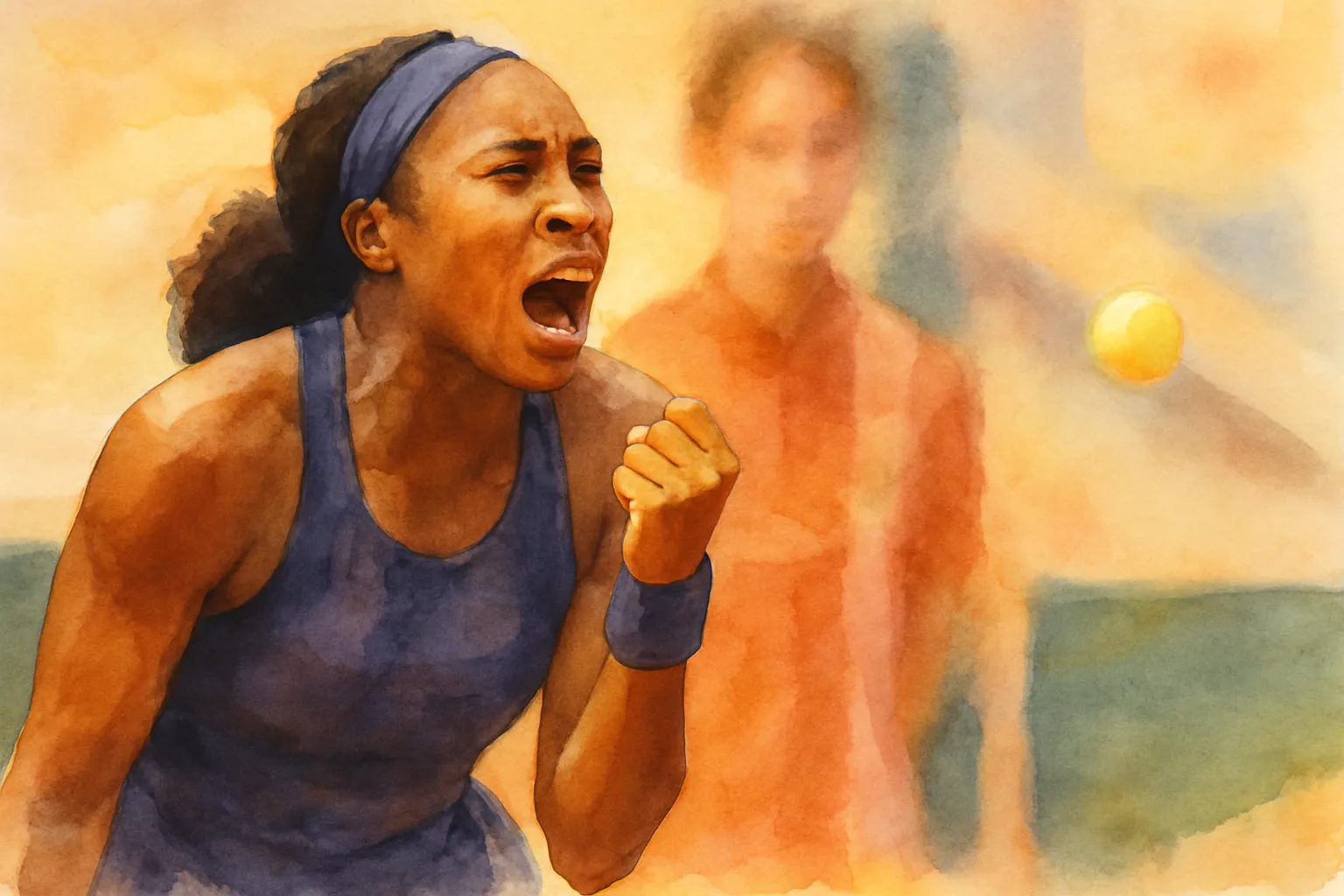
McIlroy: Masters-Aufstieg, Grand Slam gesichert – Befreite Jagd nach weiteren Auszeichnungen
May 3rd, 2025
McIlroy: Masters-Aufstieg, Grand Slam gesichert – Befreite Jagd nach weiteren Auszeichnungen
🇩🇪 Deutsch
Sign Up or Log In to Continue Reading
Create an account or log in to unlock unlimited access!
🇺🇸 English
With the addition of Rory McIlroy, golf's pantheon, akin to a Mount Rushmore, now comprises six figures indelibly etched in granite, a testament to McIlroy's ascent to the sport's most rarefied echelon.
Yet, the trajectory of McIlroy's potential achievements stretches boundlessly before him.
Nearing his thirty-sixth birthday, he espouses the conviction that his current prowess on the field surpasses that of a decade past, a contention for which there is scant empirical refutation.
Over his eighteen-year tenure on the professional golf circuit, constituting fully half of his career, McIlroy had never previously secured a trio of victories prior to the commencement of May; consequently, he now experiences an unprecedented sense of liberation, playing with what might be termed 'house money', an idiom entirely dissociated from the $13.2 million amassed through his mere six starts on the PGA Tour this season.
He is the incumbent Masters champion, a distinction he has held with considerable aplomb.
The culmination of an 11-year endeavour, he is now the recipient of a coveted size 38 green jacket, permanently housed in a locker within the Augusta National clubhouse, a tangible symbol of his lifetime entrée to the exclusive Masters Club dinner, a privilege affording him a distinguished seat at the table every Tuesday evening.
The palpable heaving of McIlroy's chest as he bowed his head upon the 18th green, immediately following his victory, was a testament to unadulterated relief; a sentiment he articulated as the precursor to the burgeoning joy that rapidly ensued, a transformation unequivocally mirrored in the countenance he presented as Scottie Scheffler assisted in the investiture of the coveted green jacket.
"Upon what subject shall our collective discourse alight in the ensuing annum?" posited McIlroy, initially from within the confines of Butler Cabin and subsequently to inaugurate his press conference. This query encapsulates the very essence of the liberation he experiences.
Would it be amenable to your schedule to pencil it in for some time during the forthcoming month?
The career Grand Slam has been consummated; it is therefore apposite to countenance the prospect of a calendar-year Grand Slam, given the propitious alignment of the remaining majors this season.
The ensuing month's PGA Championship is slated for Quail Hollow, a venue where McIlroy boasts a remarkable four-fold victory count.
Last summer, he, alongside other players, was posed a hypothetical query regarding the Tour Championship's hypothetical venue, should the FedEx Cup frontrunner possess the prerogative to designate it. McIlroy, without demur, nominated Quail Hollow.
The U.S. Open, situated at the formidable Oakmont, a venue renowned for favouring prodigious drives, seemingly plays to his strengths with unparalleled efficacy, notwithstanding his prior inauspicious outing there, which saw him card a 77 in a rain-interrupted opening round, ultimately resulting in his premature departure before the weekend's proceedings.
The Open Championship's reappearance at Royal Portrush, situated in Rory McIlroy's native Northern Ireland, carries with it a palpable sense of unresolved business for the prodigious golfer. His previous encounter with the links at Portrush was marred by a catastrophic opening tee shot, a consequence of the immense weight of expectation and personal ambition, which resulted in an ignominious octuple bogey and a subsequent, deeply disappointing failure to progress to the weekend rounds.
He returns with a surfeit of autonomy, as opposed to constraint.
While those developments are still some distance in the offing, they serve as an illustration of the paradigm shift in the discourse surrounding McIlroy, transitioning from an appraisal of his lacunae to an anticipation of his further accretions.
Scheffler, present alongside him in Butler Cabin and throughout the trophy bestowal, proffered this Tuesday's discernment: "Whilst unversed in the experience of being quizzed upon the career Grand Slam, I possess a modest apprehension of the exaction inherent in addressing inquiries that juxtapose one's accomplishments with perceived lacunae. Such interrogations can prove profoundly taxing upon individuals."
Brad Faxon, an intimate associate who collaborates with McIlroy on his putting technique, asserted that McIlroy faced no impediment to future triumphs and could potentially double his extant collection of major championships, proclaiming, "He is capable of amassing a total of ten."
Arnold Palmer and Jack Nicklaus, titans of the fairways, once averred that a nascent Tiger Woods possessed the foundational mastery requisite to secure a decuple of green jackets, an aggregate equalling their combined tally; Woods ultimately attained but a quinquennial portion of that prognosticatory mark.
McIlroy remained a round shy of securing his maiden major championship at the 2011 U.S. Open staged at Congressional, prompting Padraig Harrington to pronounce, "Should one contemplate a challenger to Jack's enduring benchmark, behold your protagonist."
Nicklaus stands as the unparalleled exemplar in golf, boasting an extraordinary haul of eighteen major championships. McIlroy, conversely, currently possesses a mere five, a figure commensurate with Brooks Koepka's, yet falling short of Woods's by a substantial ten.
It is understandable to become engrossed in the fervour surrounding this Masters, which indisputably occupies a distinguished position among the pantheon of preeminent moments witnessed at Augusta National – joining the ranks of Woods' victories in 2019, 2001, and 1997, Nicklaus' triumphs in 1986 and 1975, and Arnold Palmer's iconic win in 1960.
Nevertheless, this trajectory proved anything but facile for McIlroy, particularly on that decisive Sunday, a difficulty underscored by the preceding sixteen years of effort, punctuated by an eleven-year hiatus since his last major victory; whilst the acquisition of a Masters title remained his perennial aspiration, merely a duad of his prior sixteen attempts had witnessed McIlroy entering the pivotal back nine with a genuine, substantive prospect of prevailing.
A far greater specter loomed over players such as Greg Norman and Tom Weiskopf, David Duval and Ken Venturi, who bore significantly more psychological scarring.
Two years prior, following his near triumph at the U.S. Open, McIlroy articulated a willingness to endure a hundred such Sundays in pursuit of another major championship; ostensibly, a thousand such Sundays, especially given the considerable stakes, would have been a readily accepted price for the coveted green jacket.
McIlroy thus becomes only the sixth golfer in history to complete the career Grand Slam, entering the rarefied company of Woods, Nicklaus, Gary Player, Ben Hogan, and Gene Sarazen. Intriguingly, only four of these luminaries genuinely "achieved" the career slam in its contemporary sense, given that this now-canonical achievement was not formally recognised until Arnold Palmer's pronouncement in 1960.
Sarazen stands alone as the sole other player to have achieved the Grand Slam at the Masters, a feat he accomplished in 1935 during the tournament's nascent second iteration, prior to its designation as the Masters; his victory was formally recorded as the Augusta National Invitation Tournament, predating the institution of the iconic green jacket award in 1949 and the establishment of the Masters Club dinner in 1952.
McIlroy alone holds the distinction of securing the final leg at the Masters, that unparalleled major where memory reigns supreme, perpetually staged upon the same hallowed grounds, thereby underscoring the singular magnitude of this achievement.
To apprehend the magnitude of this achievement is to appraise not only the illustrious company he now keeps, but also the eminent figures conspicuously absent from golf's pantheon.
Sam Snead's PGA Tour record of 82 career victories is attained despite the conspicuous absence of a U.S. Open triumph. Similarly, Phil Mickelson's career accolades overshadow Rory McIlroy's, save for the persistent lacuna in his Grand Slam, specifically the elusive U.S. Open title.
Tom Watson, an acclaimed golfer with a career tally of 39 PGA Tour victories, including eight major championships, and Arnold Palmer, widely regarded as the most profoundly influential figure in the modern evolution of the sport, notably share the distinction of having never secured a win in the PGA Championship.
McIlroy was assailed by the apprehension of being consigned to the ranks of perpetual nearly-men, a specter the Masters definitively exorcises, leaving the trajectory of his further ascendance as the sole remaining consideration.
May 3rd, 2025
Trending Articles

Eine neue Ära der Thunder-Dynastie bricht an? NBA-Champions scheinen eine dauerhafte Dominanz zu etablieren.
Thunder Dynasty Dawns? NBA Champions Poised for Enduring Dominance
Eine neue Ära der Thunder-Dynastie bricht an? NBA-Champions scheinen eine dauerhafte Dominanz zu etablieren.
Thunder Dynasty Dawns? NBA Champions Poised for Enduring Dominance

Leichtathletik eröffnet kolossales Stadion in Las Vegas: Eine neue Ära für den Spitzensport beginnt.
Athletics Launch Colossal Las Vegas Stadium: A New Era for Elite Sports Begins
Leichtathletik eröffnet kolossales Stadion in Las Vegas: Eine neue Ära für den Spitzensport beginnt.
Athletics Launch Colossal Las Vegas Stadium: A New Era for Elite Sports Begins

NBA-Finals, Spiel 4: Die abgeklärte Gelassenheit der Pacers, die gefasste Haltung der Thunder inmitten der Neuausrichtung im Kampf um die Meisterschaft.
NBA Finals Game 4: Pacers' Measured Calm, Thunder's Composure Amidst Championship Reset.
NBA-Finals, Spiel 4: Die abgeklärte Gelassenheit der Pacers, die gefasste Haltung der Thunder inmitten der Neuausrichtung im Kampf um die Meisterschaft.
NBA Finals Game 4: Pacers' Measured Calm, Thunder's Composure Amidst Championship Reset.

Draisaitls Heldentaten in der Verlängerung sichern den Oilers einen entscheidenden Sieg und gleichen die Stanley-Cup-Finalserie aus.
Draisaitl's Overtime Heroics Secure Oilers' Pivotal Victory, Leveling Stanley Cup Final
Draisaitls Heldentaten in der Verlängerung sichern den Oilers einen entscheidenden Sieg und gleichen die Stanley-Cup-Finalserie aus.
Draisaitl's Overtime Heroics Secure Oilers' Pivotal Victory, Leveling Stanley Cup Final

Thunder dominieren Pacers erneut und erzwingen mit einem entscheidenden Sieg den Ausgleich in der NBA-Finalserie.
Thunder Dominate Pacers Again, Level NBA Finals Series With Decisive Victory
Thunder dominieren Pacers erneut und erzwingen mit einem entscheidenden Sieg den Ausgleich in der NBA-Finalserie.
Thunder Dominate Pacers Again, Level NBA Finals Series With Decisive Victory

Gauffs Selbstüberzeugung: Worte und Bilder als Schlüssel zum Triumph bei den French Open
Gauff's Self-Persuasion: Words and Imagery as Keys to French Open Triumph
Gauffs Selbstüberzeugung: Worte und Bilder als Schlüssel zum Triumph bei den French Open
Gauff's Self-Persuasion: Words and Imagery as Keys to French Open Triumph

Alcaraz'‘ Herkulesanstrengung: Sinner unterliegt in einem epischen Finale von Roland Garros.
Alcaraz's Herculean Effort: Sinner Succumbs in Epic Roland Garros Finale
Alcaraz'‘ Herkulesanstrengung: Sinner unterliegt in einem epischen Finale von Roland Garros.
Alcaraz's Herculean Effort: Sinner Succumbs in Epic Roland Garros Finale

Doppelsieg einer Transgender-Athletin entfacht Debatte bei den kalifornischen Leichtathletik-Finals
Trans Athlete's Dual Victory Sparks Debate at California Track Finals
Doppelsieg einer Transgender-Athletin entfacht Debatte bei den kalifornischen Leichtathletik-Finals
Trans Athlete's Dual Victory Sparks Debate at California Track Finals

Gauff dominiert bei den French Open, Tiafoes Fauxpas mit dem Schläger löst freundschaftliche Sticheleien aus.
Gauff Dominates at Roland Garros, Tiafoe's Racket Gaffe Sparks Amicable Jibes
Gauff dominiert bei den French Open, Tiafoes Fauxpas mit dem Schläger löst freundschaftliche Sticheleien aus.
Gauff Dominates at Roland Garros, Tiafoe's Racket Gaffe Sparks Amicable Jibes

Ohtani steigt in den Olymp auf: Zerschmettert seinen 20. Homerun und verewigt seinen Namen in der Dodgers-Legende.
Ohtani Joins Pantheon: Crushes 20th Homer, Etches Name in Dodgers Legend
Ohtani steigt in den Olymp auf: Zerschmettert seinen 20. Homerun und verewigt seinen Namen in der Dodgers-Legende.
Ohtani Joins Pantheon: Crushes 20th Homer, Etches Name in Dodgers Legend
Sign Up or Log In
Create an account or log in to continue reading and join the Lingo Times community!